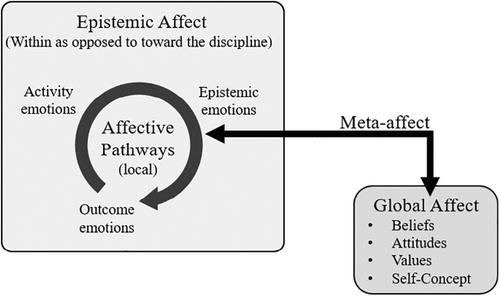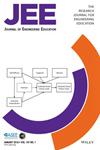Real-world engineering problems are ill-defined and complex, and solving them may arouse negative epistemic affect (feelings experienced within problem-solving). These feelings fall into sequenced patterns (affective pathways). Over time, these patterns can alter students' attitudes toward engineering. Meta-affect (affect or cognition about affect) can shape or reframe affective pathways, changing a student's problem-solving experience.
This paper examines epistemic affect and meta-affect in undergraduate students solving ill-defined problems called open-ended modeling problems (OEMPs), addressing two research questions: What epistemic affect and transitions between different affective states do students report? And, how does meta-affect shape students' affective experiences?
We examined 11 retrospective interviews with nine students performed across two semesters in which students completed OEMPs. Using inductive and deductive coding with discourse analysis, we systematically searched for expressions conveying epistemic affect and for transitions in affect; we performed additional deductive coding of the transcripts for meta-affect and synthesized these results to formulate narratives related to affect and meta-affect.
Together, the expressions, transitions, and meta-affect suggest different types of student experiences. Depending on their meta-affect, students either recounted experiences dominated by positive or negative affect, or else they experienced negative emotions as productive.
Ill-defined complex problems elicit a wide range of positive and negative emotions and provide opportunities to practice affective regulation and productive meta-affect. Viewing the OEMPs as authentic disciplinary experiences and/or the ability to view negative emotions as productive can enable overall positive experiences. Our results provide insight into how instructors can foster positive affective pathways through problem-scaffolding or their interactions with students.



